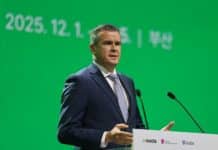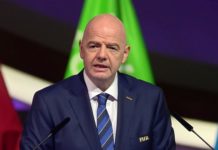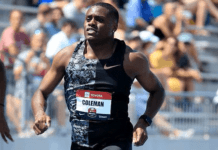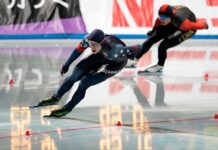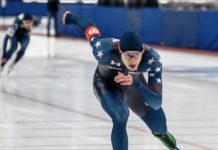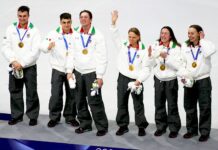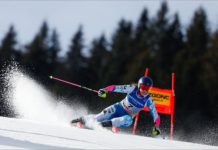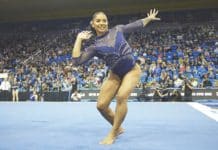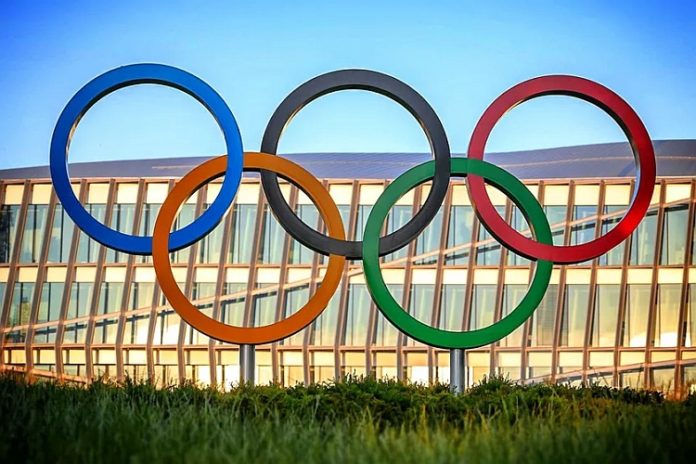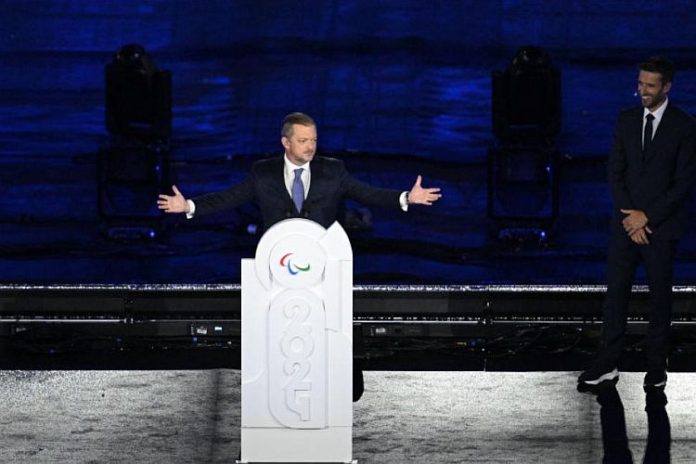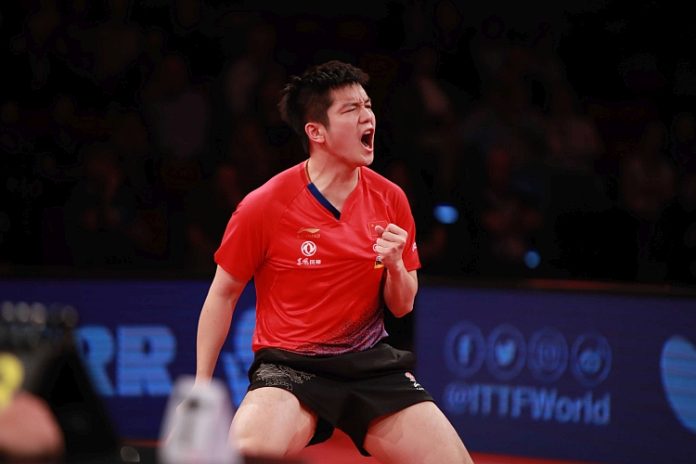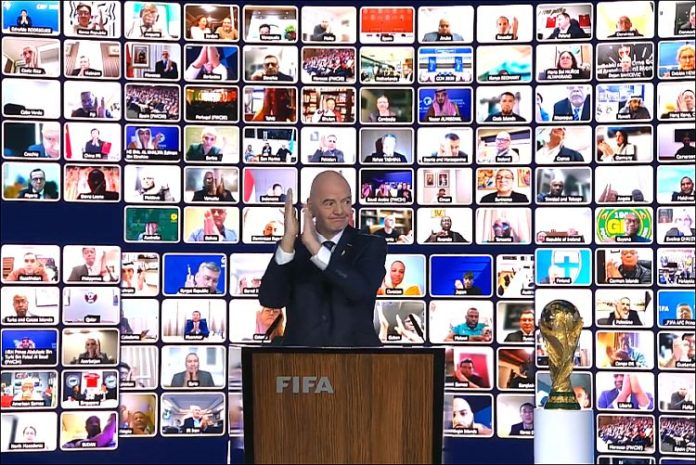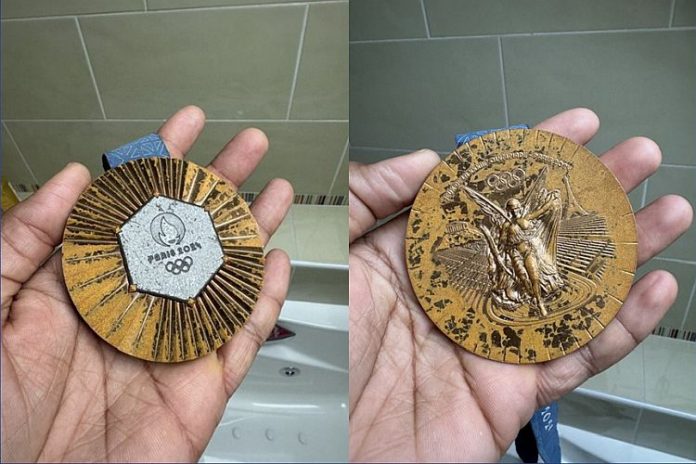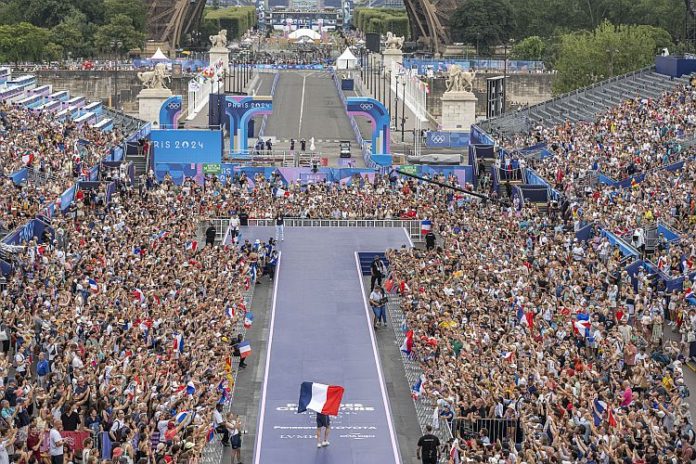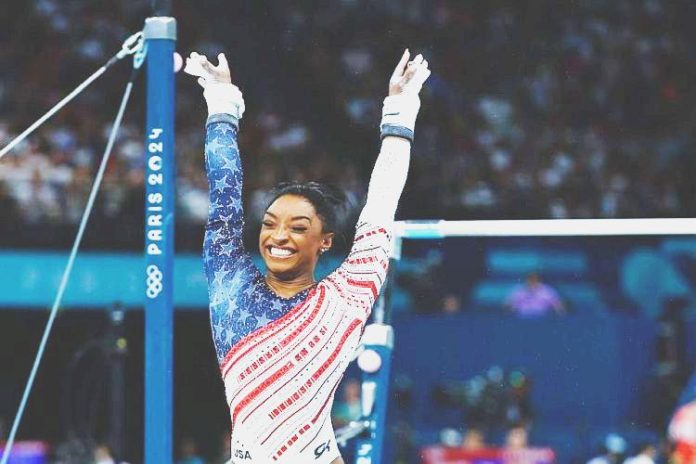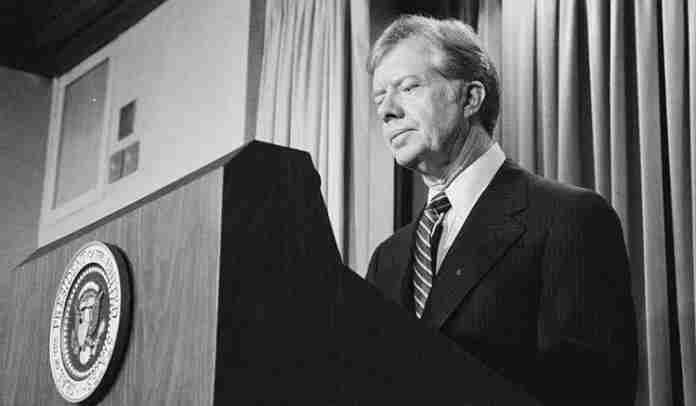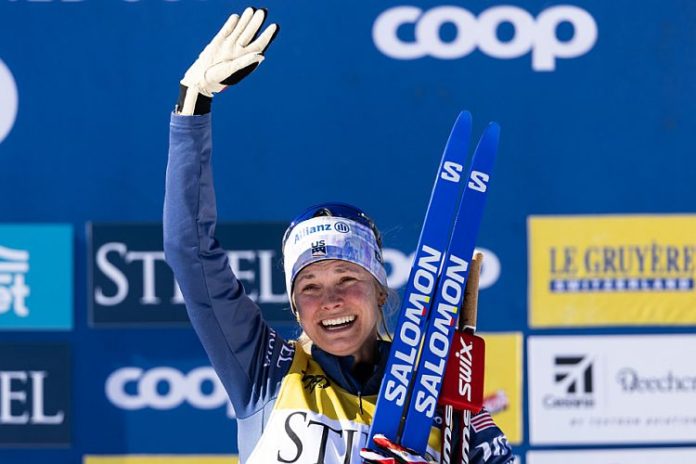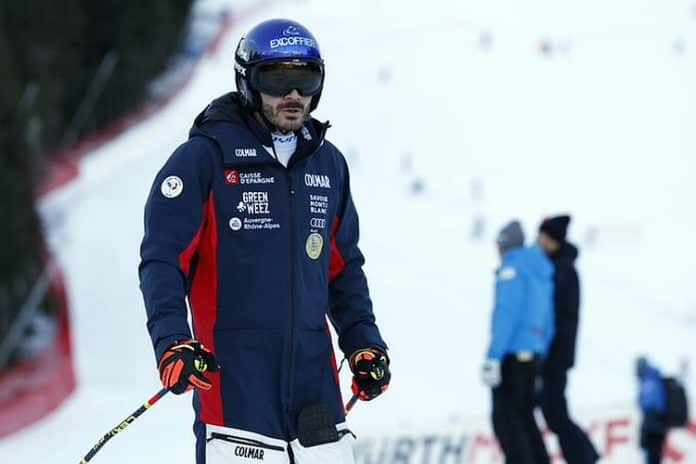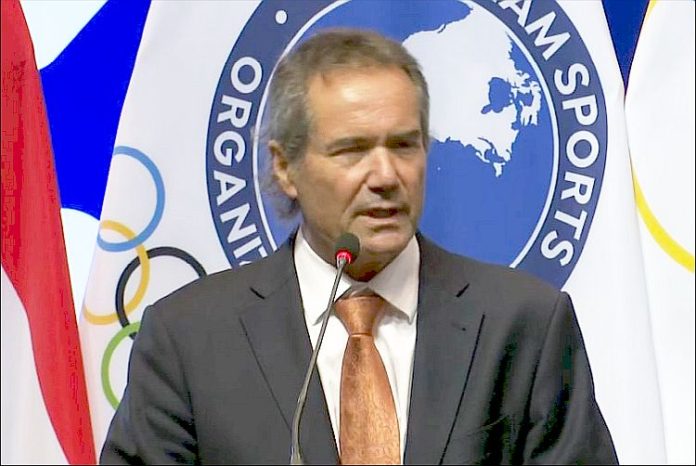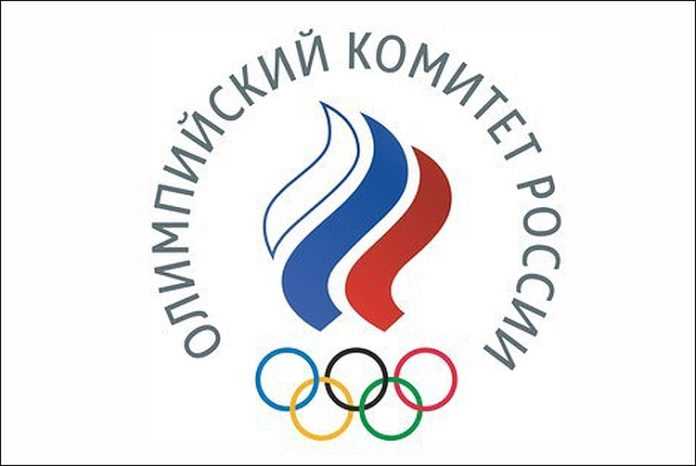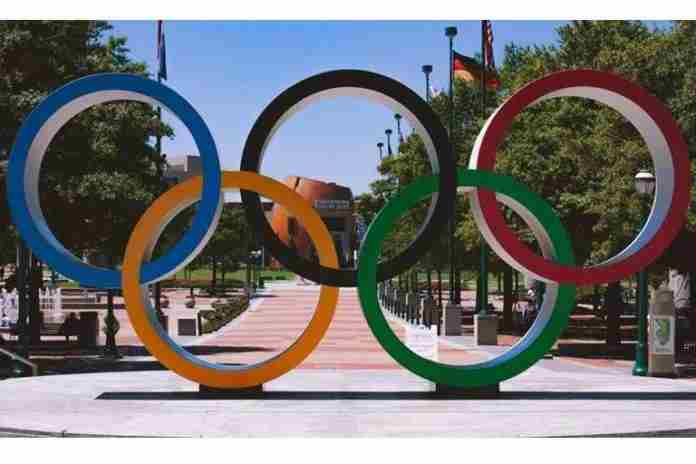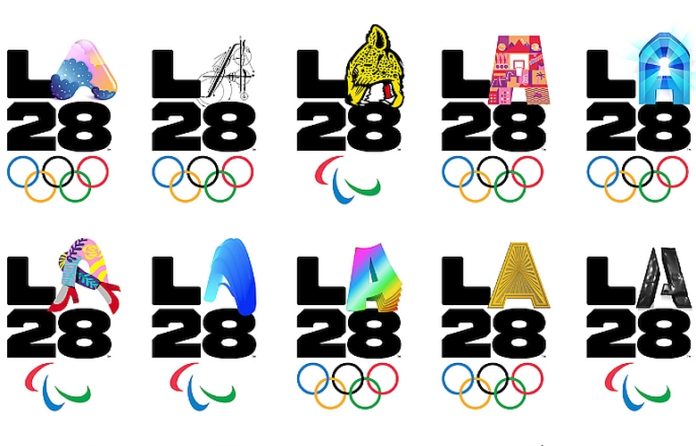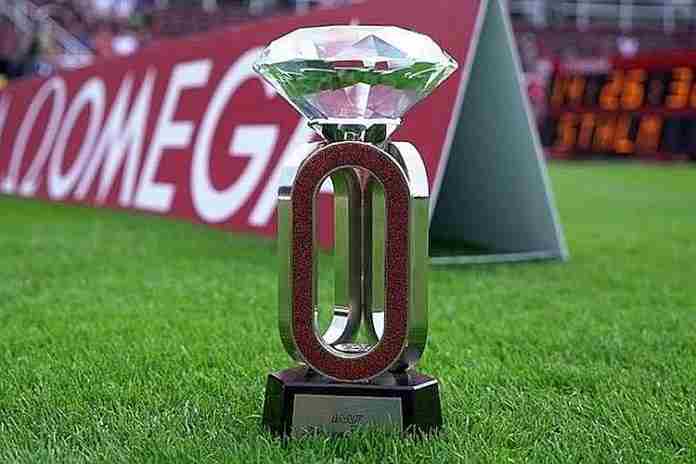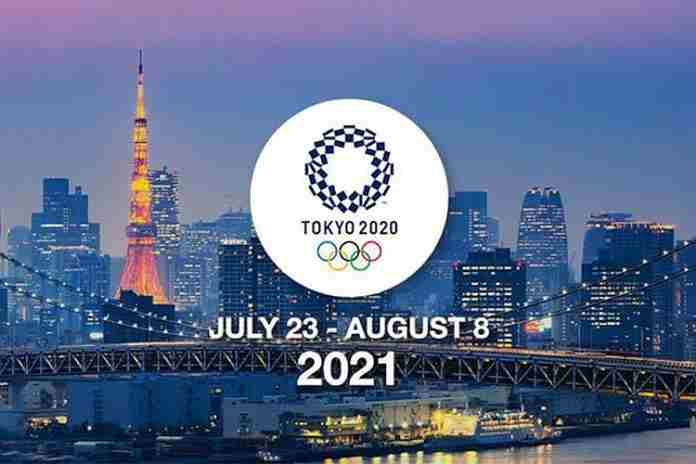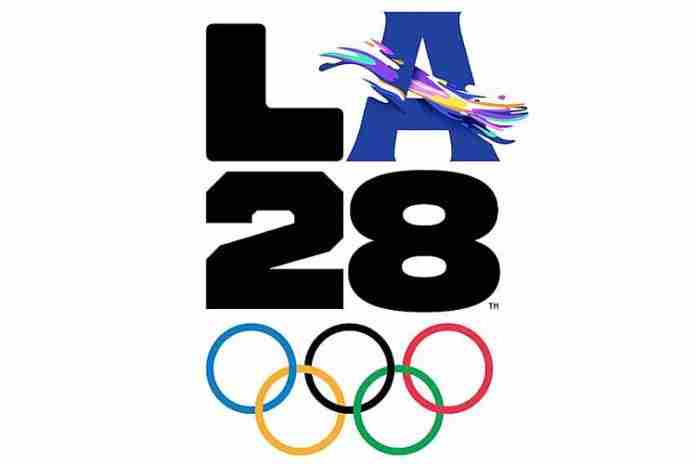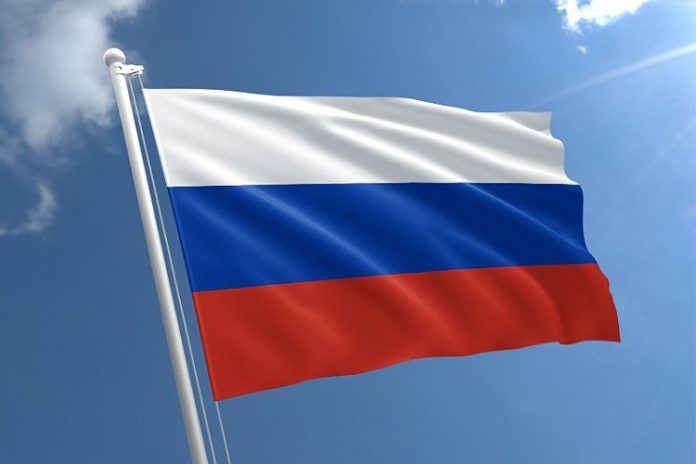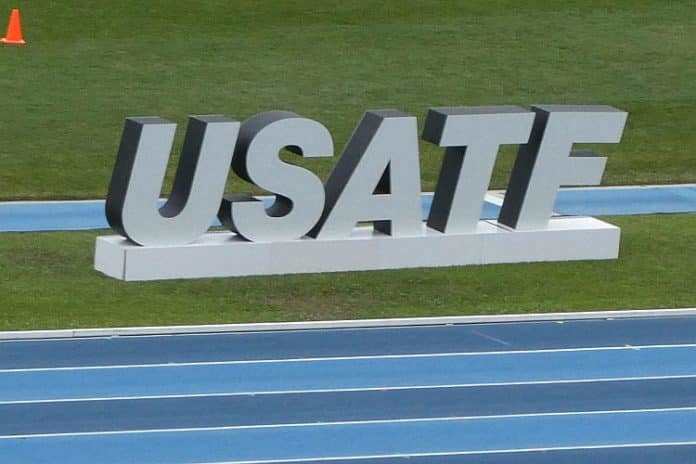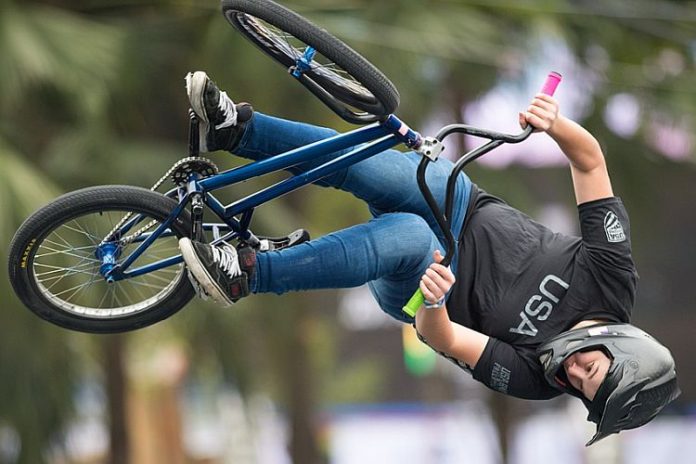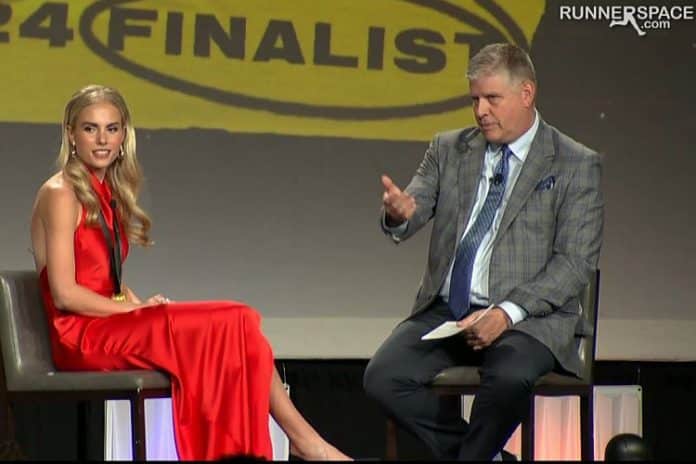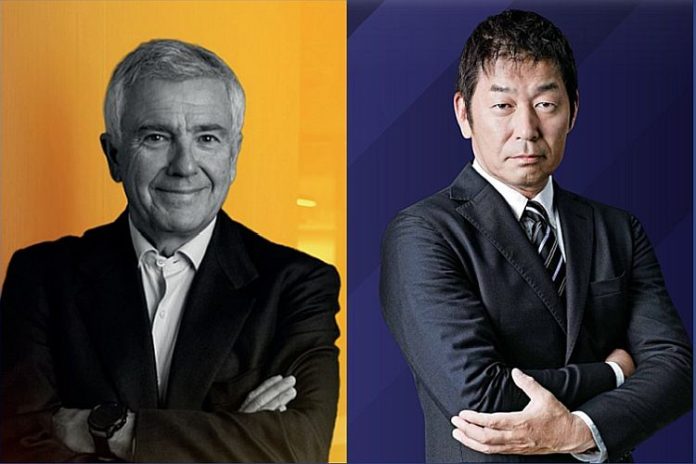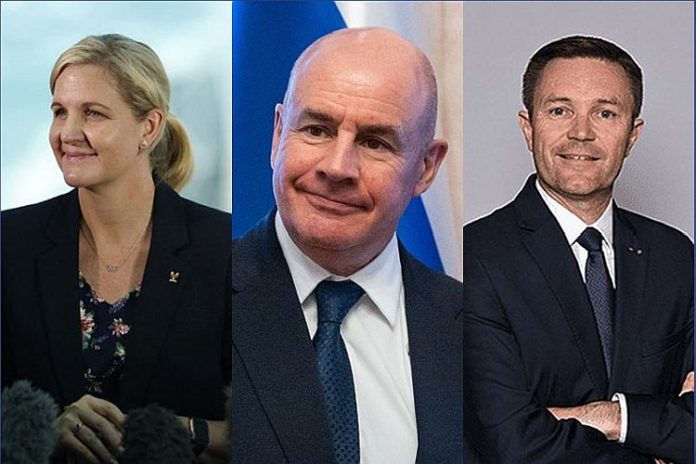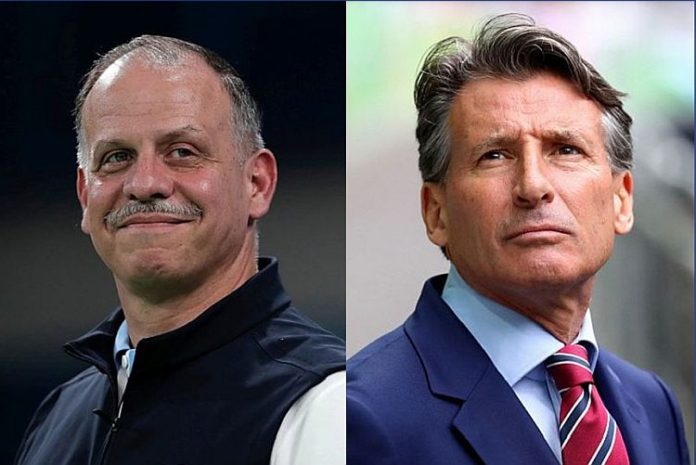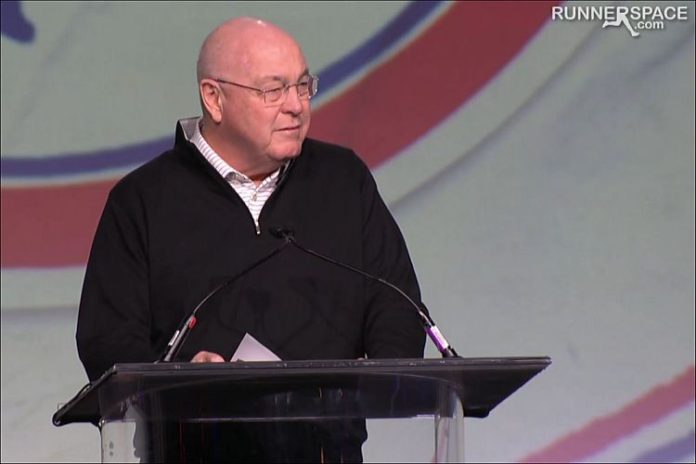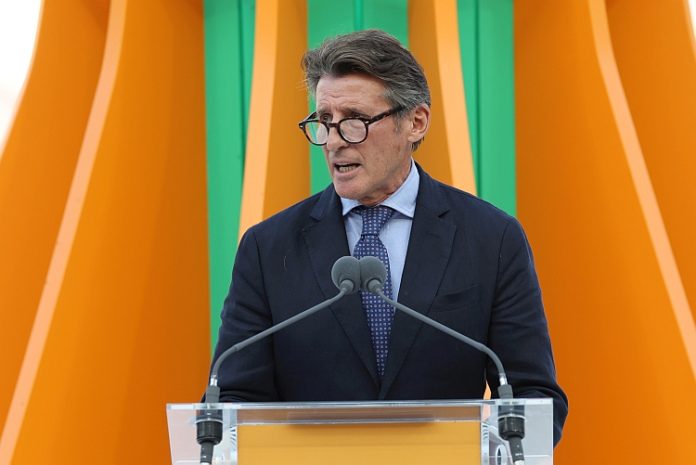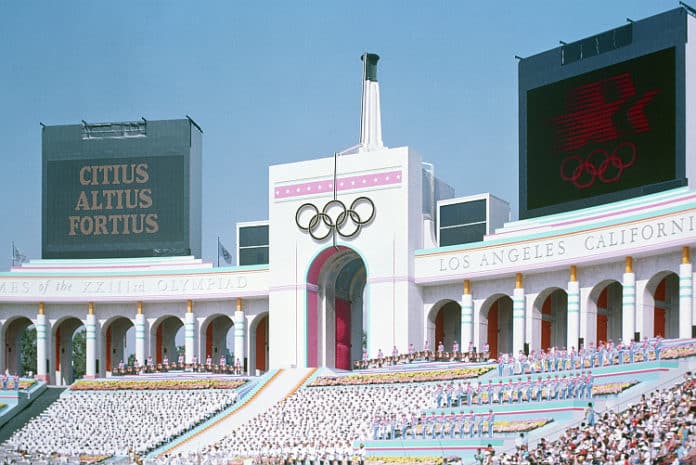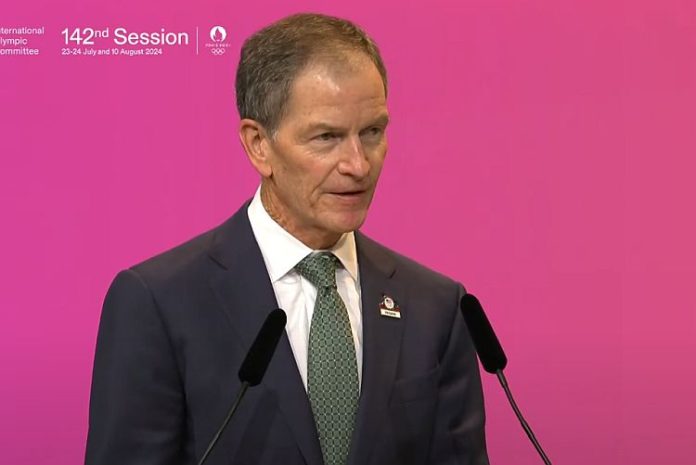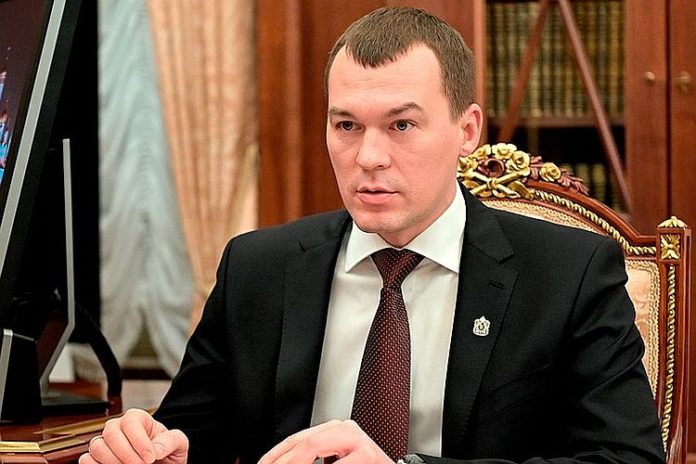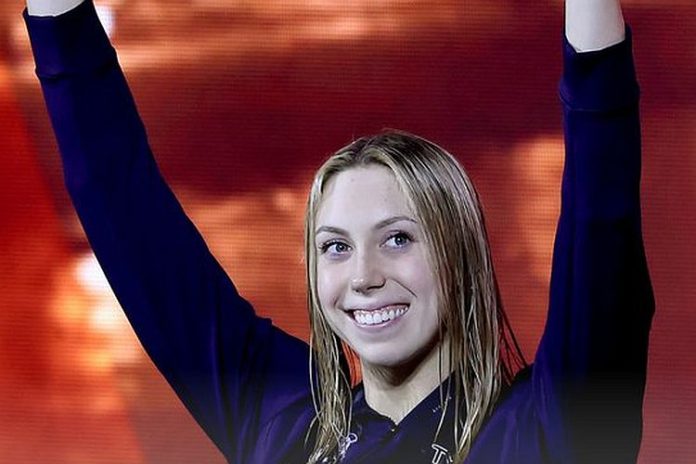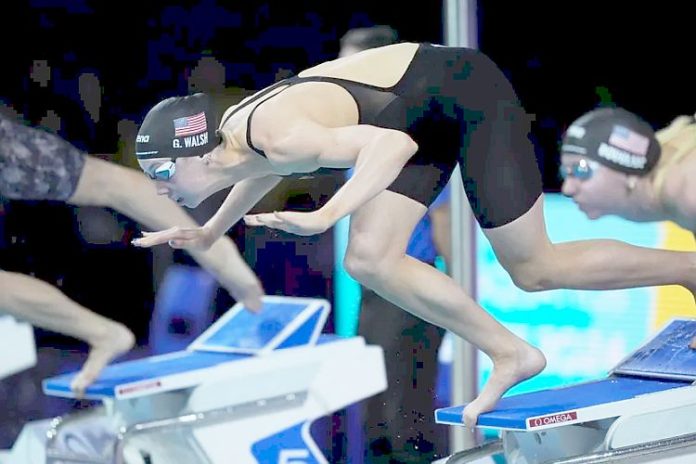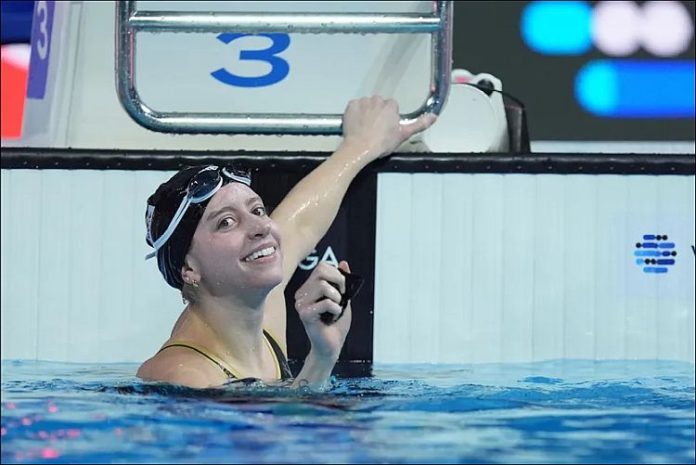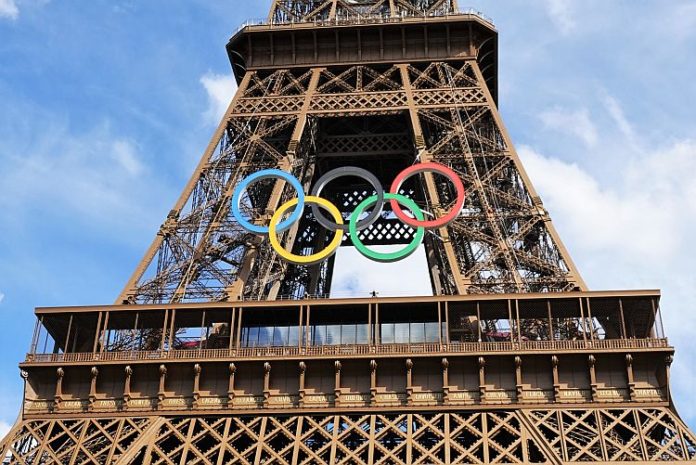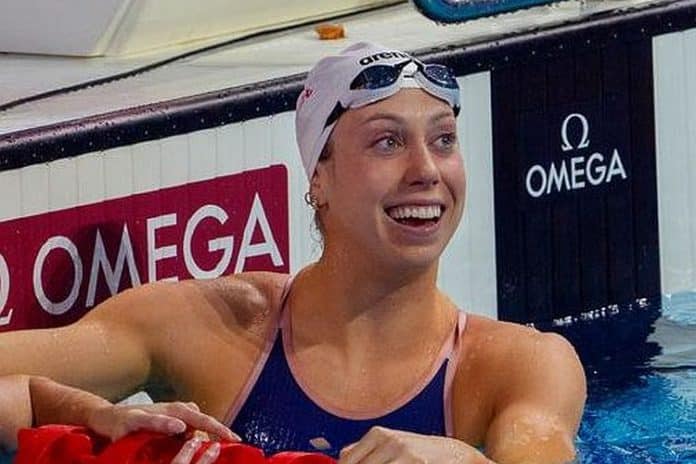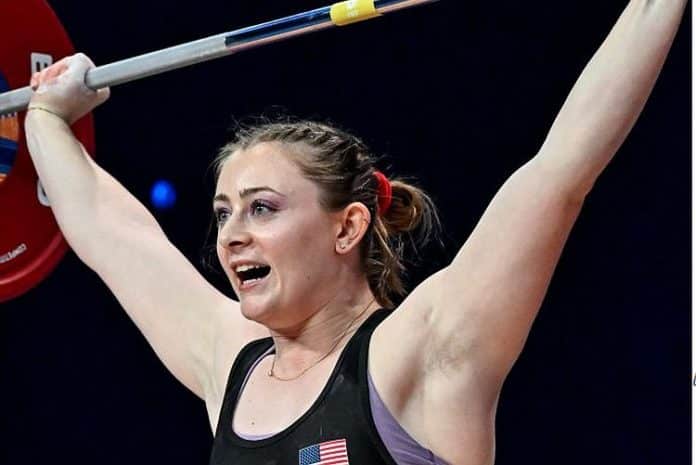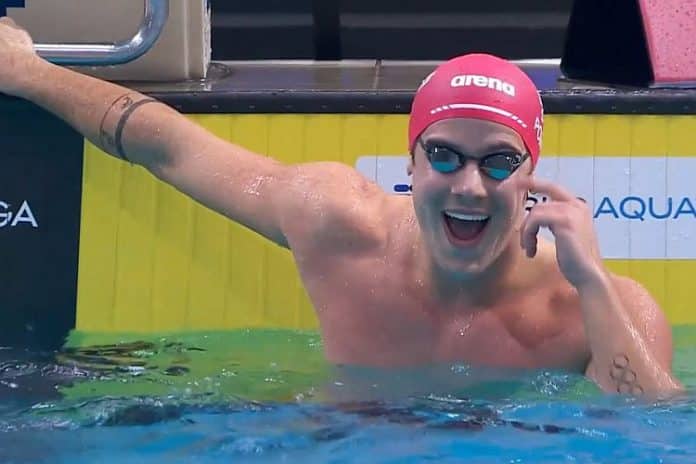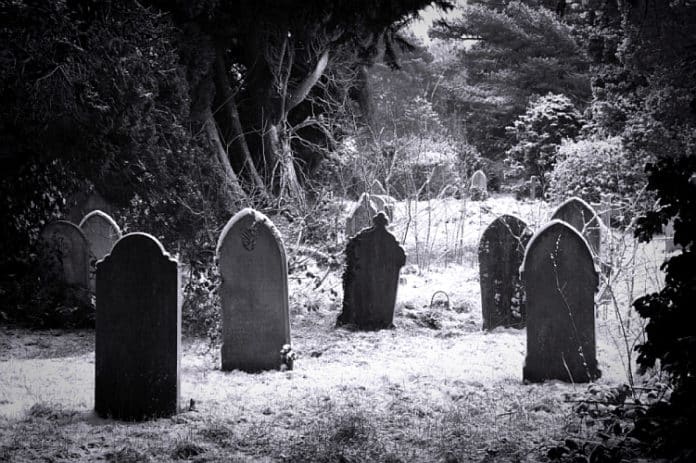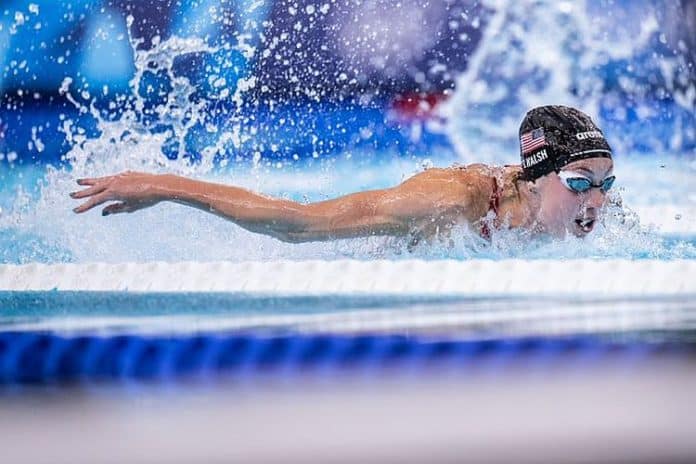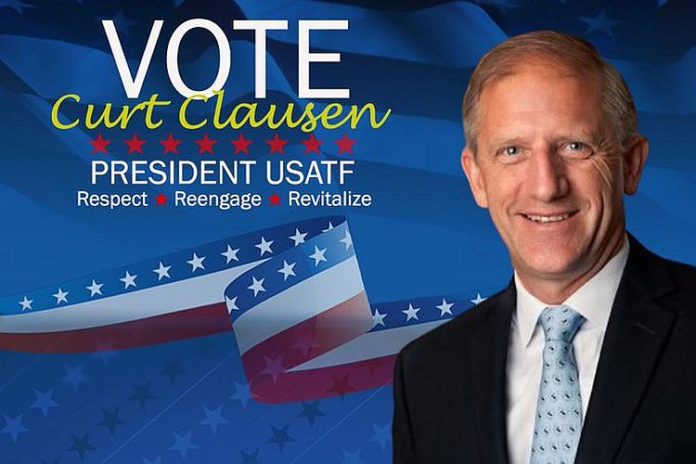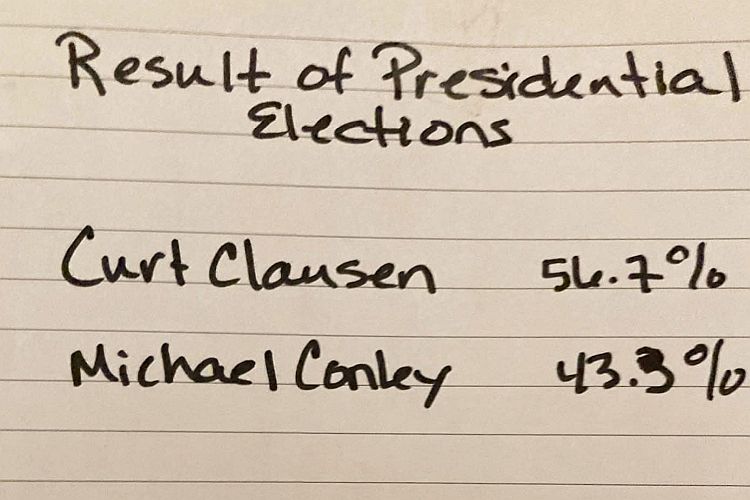★ The Sports Examiner: Chronicling the key competitive, economic and political forces shaping elite sport and the Olympic Movement.★
★ To get the daily Sports Examiner Recap by e-mail: sign up here! ★
≡ STORIES OF 2025 ≡
Happy New Year from The Sports Examiner! We’ve run down the top stories of 2024, topped by a brilliant Paris 2024 Olympic Games, and shared our picks for the stories of 2025 – from no. 10 to no. 6 – and so, here are our top five for the new year:
No. 5: LA28 – and Los Angeles – coming into focus
When the International Olympic Committee made the dual hosting awards to Paris and Los Angeles in 2017, the 2028 Olympic Games seemed so far away. Not any more.
With the enormous success of Paris, L.A. is on the clock now and will be the full focus of the Olympic Movement in little more than a year, following the Milan Cortina 2026 Winter Games next February.
Will L.A. be ready?
The LA28 organizing committee received a vote of confidence in November from the IOC Coordination Commission, via Chair Nicole Hoevertsz of Aruba:
“I think that Paris 2024 really took the global appetite for the Olympic and Paralympic Games to new heights, something really historic, I should say. … It demonstrated the importance of engaging everyone and bringing them along on the journey. LA28 also has the capacity to energize the Games, with L.A.’s culture of innovation and through its vision of harnessing the power of sports and community to collectively create ‘what’s next’ for new generations. …
“Our visit this week reaffirms that LA28 is poised to inspire the next generation and make a positive impact.”
However, the organizing committee still needs to name venues in 12 sports, will need to expand from about 180 staff now to perhaps 600 or more during 2025, and has retooled its leadership team with former U.S. Army Lt. General Reynold Hoover as chief executive, and former Nike senior executive John Slusher as the head of the U.S. Olympic & Paralympic Properties sales team.
LA28 Chair Casey Wasserman has confirmed, over and over again, that some $4.6 billion – about 64% of the budget – has already been committed from the IOC, sponsors and suppliers, hospitality providers and licensing and merchandising agreements. But that leaves $2.2 billion to go and more is looked for from domestic partnerships.
Elsewhere, the City of Los Angeles named ex-Council member Paul Krekorian – a budget hawk – as its Executive Director of the Office of Major Events, responsible for oversight of the City’s responsibilities, coordination of efforts for 2028 and to keep an eye on LA28 and its spending.
Some City Council members were critical of LA28’s mid-year announcement of multiple venue changes, as approval by the City is required for several of the moves. But there has been no meeting of the Council’s Ad Hoc Committee on the 2028 Olympic and Paralympic Games since June, so nothing has been done.
The Los Angeles Metropolitan Transportation Authority (Metro) has made no secret of its need for support to provide service for the 2028 Games, and in November asked the Trump transition team for $3.2 billion in funding for 10 projects, including rental of 2,700 buses. Metro has a multi-million-dollar contract now in the bidding process to engineer, prepare and deliver the 2028 Games support system, with first proposals due on 14 January.
A lot needs to happen in 2025.
No. 4: Will Grand Slam Track save the sport?
Fans of track & field have seen performances in the sport rise to perhaps the highest level in history, and both athletes and supporters are waiting for a breakthrough that will raise its profile to equal golf, tennis, Formula 1 racing and so on.
Michael Johnson, the iconic Atlanta 1996 double gold medalist in the 200 and 400 m, is trying and raised $30 million in support to launch Grand Slam Track, a four-meet program that will debut in 2025:
● 04-06 Apr.: Kingston, Jamaica
● 02-04 May: Miramar, Florida
● 30 May-01: Philadelphia, Pennsylvania
● 27-29 Jun.: Los Angeles, California
It will work like this:
“Racers and Challengers will be assigned to compete in one of the following categories, and will all race in two events during each Slam: short sprints (100m/200m), short hurdles (100H or 110H/100m), long sprints (200m/400m), long hurdles (400H/400m), short distance (800m/1500m), or long distance (3000m/5000m). All competitors’ final placement score will be determined by their combined finishing order between the two races. …
“The winner of each Slam group will take home $100,000 in prize money, and the 8th place competitor will earn $10,000. Grand Slam Track will have a total of $12.6m of prize money that will be awarded across the slams each year in addition to the base compensation and appearance fees paid to racers.”
The project will have just 96 total competitors, and does not include field events, or the 10,000 m or relays. Johnson explained to the BBC:
“Grand Slam Track is track, that is what we’re doing. I am going to save what I think I can save; I think I can save track, I don’t think I can save track and field.
“Putting the two together works at the Olympics and World Championships, but I’m not sure it works when you’re trying to create a professional sport outside of those global competitions.”
Johnson is one of several individuals and groups which are looking at track & field once again for investment, and the enthusiasm has not been this high since the International Track Association was formed as a fully professional circuit following the 1972 Olympic Games. It held 51 meets, but folded in the fall of 1976.
Grand Slam Track is now selling tickets, but no broadcast arrangements have been announced as yet. There are many cheering the project on, and there will be a lot of eyes on this program to see if it can lift interest to a new level, but it will not be easy.
No. 3: Will boxing make it onto the LA28 Olympic program?
Boxing has been a part of the Olympic Games since 1904, when it was introduced at the St. Louis Games, except for Stockholm in 1912, because the sport was banned in Sweden. It may or may not be a part of the 2028 Olympic Games in Los Angeles.
Its fate is expected to be known in the first quarter of 2025, specifically at the IOC Session in Costa Navarino, Greece, during the 144th IOC Session.
What happened? The short version is that federation president C.K. Wu (TPE), elected in 2006, made a series of what turned out to be disastrous organizational and financial decisions that left the federation deeply in debt. Wu resigned in 2017 and the IOC suspended AIBA in 2019 and formed an internal task force to run the qualifications and Olympic tournament for Tokyo 2020 and later for Paris 2024.
Meanwhile, Russian Umar Kremlev was elected to head AIBA (now IBA for International Boxing Association) in 2020 and enlisted the Russian energy giant Gazprom to pay off its debts, while resisting disclosure of the agreement. After a dubious second election of Kremlev in 2022, the IOC decided, in a special Session in June 2023, to withdraw recognition of the federation and leave the sport without a governing body for Olympic purposes. Therefore, it could not be confirmed for the 2028 Olympic Games.
A possible new federation – World Boxing – was formed in 2023, specifically to govern Olympic boxing and requiring recognition by the IOC. By the end of 2024, it had 60 members.
The IOC has not recognized World Boxing yet, but has told the National Olympic Committees not to support any national boxing federation which is still affiliated with the IBA, ramping up the pressure to join World Boxing. And in December, IOC chief Thomas Bach explained the future of boxing in the Olympic Games:
“This is in the hands of the national boxing federations, whether they want their athletes to give an opportunity to win Olympic medals or not. It’s very easy and there, we see there is some moves with a number of federations. We are watching this and when the time comes, we have to make, like for any recognition, a provisional recognition of any International Federation, we have to make an assessment whether there is a federation – and in this moment, it looks like the only one it could be is World Boxing – whether they are meeting the criteria which we have for such situations.
“And there, to be very clear, it cannot be IBA [International Boxing Association]. This story is over, for all the reasons: governance, ethical reasons, you know.”
Bach has said that the decision whether or not to have boxing in 2028 needs to be made in the first quarter of 2025. Well, we’re here.
There is movement toward World Boxing, but also resistance, with IBA pressuring members to stay affiliated and hoping for a better relationship with whoever the next IOC President will be. The losers, as always, appear to be the boxers.
No. 2: The showdown: WADA vs. USADA
This was our no. 6 story of 2024, stemming from the controversy over the 23 Chinese swimmers who tested positive for the heart medication trimetazidine in January 2021. The Chinese Anti-Doping Agency investigated and held that the positives were due to food contamination in a kitchen in which meals for the swimmers were prepared.
The World Anti-Doping Agency had doubts about the excuse, but in a situation where it could not make its own, on-the-ground examination as China was still on lockdown due to the Covid-19 pandemic, decided it could not win an appeal to the Court of Arbitration for Sport, and therefore did not file.
In April 2024, a German ARD channel documentary exposed the case and the decisions made by CHINADA and WADA.
Other anti-doping organizations were horrified, especially that no provisional suspensions were handed to as per the World Anti-Doping Code, which shifts the burden to the athletes to explain how the prohibited drug got into their systems. Instead, CHINADA simply exonerated them without penalty. Eleven of the 23 who tested positive competed at the Paris 2024 Games.
The most vocal outrage came from the U.S. Anti-Doping Agency, which highlighted the issue in front of Congressional hearing with Olympic swimming stars Michael Phelps and Allison Schmitt as witnesses.
In response, WADA unleashed its own barrage against USADA, and the IOC added a clause at the last moment in the Olympic Host Contract with Salt Lake City for the Olympic Winter Games in 2034 in late July, with the award of the Games to be terminated if:
“the Host Country is ruled ineligible to host or co-host and/or to be awarded the right to host or co-host the Games pursuant to or under the World Anti-Doping Code or if, in any other way, the supreme authority of the World Anti-Doping Agency in the fight against doping is not fully respected or if the application of the World Anti-Doping Code is hindered or undermined.”
This had no impact on USADA, or the U.S. Congress. WADA, under increasing pressure, commissioned former Swiss prosecutor Eric Cottier for a limited report on whether WADA showed bias toward China and whether the decision to appeal was “reasonable.” Cottier found for WADA on the two questions asked, but had lots of questions about its process and decision-making.
In September, WADA blasted USADA and its testing programs in a publicly-released letter to the Central European Anti-Doping Organization, with a November response from USADA Board Chair Dr. Tobie Smith that included:
“The baseless and defamatory claims outlined in your letter and the CEADO letter are being revealed for what they are – a politically motivated diversion to undermine the credibility of USADA and to attempt to weaken trust in the U.S. sports governance at the very time the world is demanding answers from you as to why you allowed China to violate the rules.”
What happens now?
The U.S. Olympic & Paralympic Committee has been working to try and ease the tensions between USADA and WADA, an important first step. However, the U.S. government – notably the White House Office of National Drug Control Policy – continues to be unhappy with WADA and did not pay the U.S. dues for 2024 in protest, of $3,624,983.
The WADA Compliance Review Committee is reviewing the USADA status and WADA has said it has filed a defamation suit against USADA. If USADA is held to be non-compliant, then under the rules, the U.S. would not be authorized to host either the 2028 Olympic Games in Los Angeles, or the 2034 Olympic Winter Games in Salt Lake City.
Neither side has shown any interest in conciliation, but the situation has to be resolved, and the parties all know it. With no Olympic Games in 2025, this could be the time for cooler heads to prevail.
No. 1: The IOC Presidential Election
For better or worse, the President of the International Olympic Committee has been, for decades, the leader of international sport and because of the enormous television and sponsorship revenues attached to the Games, has been the funder of much of the Olympic Movement since the 1980s.
The IOC was transformed from a tiny entity in Lausanne, Switzerland in the early ‘80s to a behemoth under President Juan Antonio Samaranch (ESP), who was in charge until 2001. The growth continued under Belgian head Dr. Jacques Rogge (2001-13) and has accelerated during the presidency of Bach, elected in 2013.
Bach revised the IOC’s processes in many area, including new bidding procedures for the Games that eliminated the many losers that marked the historical format, insisted that no new venues be built for any Games unless as part of a permanent legacy program, greatly expanded the IOC’s staff and reach and much more.
He was asked by many members to stay on for a time in view of the wars in Ukraine and the Middle East and a time of transition for sport in the digital age. But he decided not to continue past his 12-year, two-term mandate and so the election of the 10th IOC President will take place at the 144th IOC Session in March in Greece.
Seven are running:
● Prince Feisal Al Hussain (JOR): 61, IOC member since 2010
● Sebastian Coe (GBR): 68, IOC member as World Athletics President
● Kirsty Coventry (ZIM): 41, IOC member since 2013
● Johan Eliasch (GBR): 62, IOC member as Int’l Ski & Snowboard President
● David Lappartient (FRA): 51, IOC member as Union Cycliste Int’l President
● Juan Antonio Samaranch Jr. (ESP): 65, IOC member since 2001
● Morinari Watanabe (JPN): 65, IOC member as Fed. Int’l de Gymnastique President
TSX profiled their positions on the key issues of the campaign here and here. Coe inserted a fascinating tactical procedure into the election, offering to stand for just a four-year term instead of the regulation eight years in view of his age (68) and IOC regulations that would require him to end his term after six years.
That will, apparently, require the IOC members to vote on whether to allow Coe to participate in the full election – for his proposed four-year term – which could bring a closer look at his manifesto and his 30 January presentation.
Who will win? Coe is favored by some due to his lengthy experience and wide range of roles within the Olympic Movement. But all seven have been successes in their own right and, as these elections often do, will come down to (1) who has the members’ trust and (2) what behind-the-scenes agreements on voting blocs are made, at least for the first round of voting.
The next step is the 30 January presentations to the members, which will be behind closed doors, with no question-and-answer period. The decisions will come a couple of months later.
Who wins is a big deal, as under Bach, the IOC President has set the agenda for the organization, and therefore for the entire Olympic Movement. It will almost certainly be the most impactful story of 2025.
Rich Perelman
Editor
★ Receive our exclusive, weekday TSX Recap by e-mail by clicking here.
★ Sign up a friend to receive the TSX Recap by clicking here.
★ Please consider a donation here to keep this site going.
For our updated, 895-event International Sports Calendar for 2025 and beyond, by date and by sport, click here!







